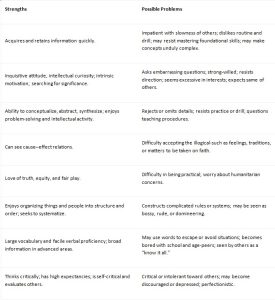
What We Wish We Knew: Tips and Reflections for Parenting in the Overlap of Gifted and Mental Health
Parents who lost a profoundly gifted daughter to suicide share practical guidance: trust your instincts, seek clinicians who understand giftedness, watch for self-harm and eating disorders, manage social media risks, research local laws and services, access parent supports, care for the whole family, and fight stigma.


